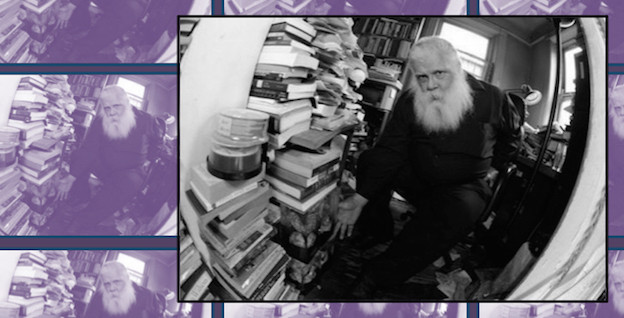A tribute to Samuel Delany

When Tracie Morris asked me to say a few words at this celebration, I was reluctant. I had never met Mr. Delany and I wasn’t an expert on his work. And I don’t speak critical theory. But I believe that when you have a chance to thank someone whose work is foundational — who opens a way for others — you have to say thank you.
So I’m here to talk about what Samuel Delany means to me as a reader and writer of speculative fiction. I encountered his work years and years ago and over the years since. It has staying power.
For a long time science fiction and fantasy had a fairly well-deserved reputation for telling a certain kind of story about certain kinds of people. So, for instance, you could have books about people on spaceships, and no female characters. At all. As a young reader, I didn’t think about this. What’s assumed isn’t noticed.
Besides females, other people left out: anyone who wasn’t white (unless they were green or blue), anyone who wasn’t straight (those men on the spaceship weren’t having sex with each other — sex was left out too), children, artists, poets …
But here’s Delany’s Babel-17, published in 1966, with spaceship Captain Rydra Wong, our hero — a poet — the only one who can decipher a strange alien language. A language so lucid, so concise, so precise that it seduces her, gives her a powerful new way to think, and hides part of her from herself. A created language designed to hijack the human brain. (Like a computer virus, before computer viruses existed.) In her crew are all kinds of people, living and dead — including one trio, two men and a woman, whose sexual compatibility is crucial to running the ship. I don’t know how Delany feels about this early work, but I can say that, having just reread it for probably the fourth time in forty years, I still love it.
What I didn’t realize when I first read his books (being oblivious to authors’ biographies) was that much of what seemed strange and marvelous to me was probably his own life, transposed. That he was making room for himself and his experiences in his stories, which made it possible for some readers to see themselves, and others to encounter something new. And maybe he wrote science fiction then because that was the only genre where his stories could find a place.
Even as I was first encountering science fiction, it was blowing wide open. Delany was an important part of that. He was saying, hey, you there inside the little room you imagine is the whole universe — there’s more out here. Come take a look.
I found Delany’s work at a time when it seemed everything could be questioned, and anything might be reinvented. We thought we would get rid of marriage, schools, jobs, governments, all the mundane institutions. Hadn’t any clear ideas about what might come next.
It seems like speculative fiction would be perfect for times like those — or for times like these. And at its best, it is. I’m not talking about fiction that offers prescriptions or predictions. I’m talking about sustained thought experiments with protagonists. Thinking, feeling protagonists to help us think and feel our way into the unknown.
Delany’s novels have carried us very far indeed, far ahead, far and wide. Which is why books he wrote fifty, forty, thirty years ago are still read and still talked about and still treasured by readers such as myself.
Edited by Tracie Morris